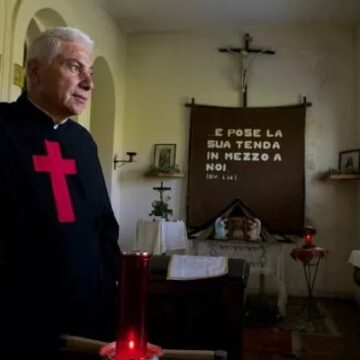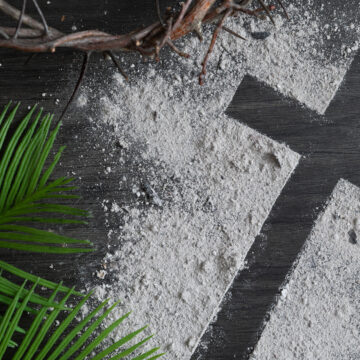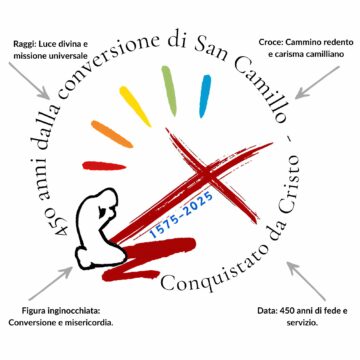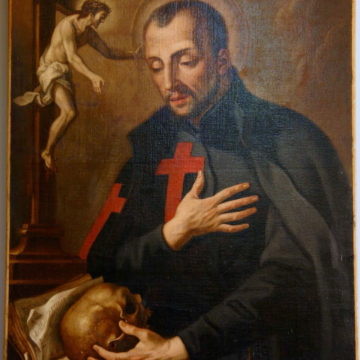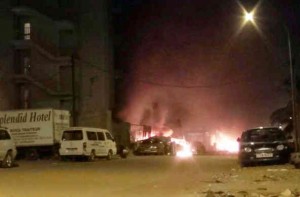 The beginnings of my voyage to Burkina Faso did not progress under the happiest of stars!
The beginnings of my voyage to Burkina Faso did not progress under the happiest of stars!
While in the darkness of the evening, from the window of the aeroplane, I was already looking at the pale yellow lights of the city of Ouagadougou – the capital of Burkina Faso – and the pilot had begun his manoeuvres for the landing, a few hundred yards from the airport the blind and wicked violence of terrorists was raging.
At that point, while the aeroplane suddenly gained height and went towards a destination which was at that moment unknown, the tension was palpable!
A sort of ‘pilgrimage’ had begun in the eastern part of Africa: the first destination was the runway of the airport of Niamey – the capital of Niger – and then, after a new takeoff and a new landing, a hotel – for a few hours of rest – in Lomé, the capital of Togo.
As often happens in these situations, the tension, the stress and fear of the unknown made us more simple, more immediate, less formal: we found that we were ‘supportive’ because we shared the same precariousness…
It was in this waterhole of feelings and during the long hours spent in the aeroplane, at first, and then in the hall of the hotel, afterwards, that I discovered an extraordinary humanity, exactly the opposite of what the previous evening had sown and of which we were more or less aware: fear, hopelessness, pain and death!
It was specifically at that difficult moment – while ‘politics’ was deciding the fate of our flight – that I experienced strong emotions which were the best framework in which to place the confirmations that I was to receive over the next few days!
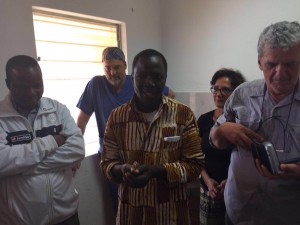 In substantial terms, I was moved for two reasons. The first reason arose from listening to the experiences of ‘good’ people for whom it was normal to choose to dedicate some weeks of their holidays or work permits, to share their professional skills and knowledge, to stimulate development, and to offer a better quality of life to men and women, unknown to them, but in need of various basic necessities.
In substantial terms, I was moved for two reasons. The first reason arose from listening to the experiences of ‘good’ people for whom it was normal to choose to dedicate some weeks of their holidays or work permits, to share their professional skills and knowledge, to stimulate development, and to offer a better quality of life to men and women, unknown to them, but in need of various basic necessities.
This was the case of the ‘electricians without frontiers’ – who are certainly much less well known than the more celebrated ‘doctors without frontiers’ – who with their cables, tubes and metres bring light and energy to the South of the world.
The second reason that moved me was coming across the ‘good reputation’ of our Camillian religious brothers of Burkina, even before I had met them. When I told my ‘flight companions’ that I was a Camillian religious nearly of all them said that they knew about them and acknowledged the value of their presence in the context of the country, their integrity and the integrity of their institutions, and their professional commitment to serving the sick and the poor, to evangelisation, to human formation and to the promotion of health!
And it was precisely this that I immediately encountered:
· Many young men receiving formation in seminaries and in places used for the growth and the discernment of the Camillian vocation. Probably not all of them will become Camillian religious, but in relation to them, to them personally, and to their humanity, a great gesture of trust has been made. Tomorrow, however, we will have better people…
· Many religious – with low average ages compared to the percentages that we are used to having in Europe – engaged on the front of the Camillian identity and Camillian ministry: medical students and/or students specialising in nursing; religious involved in evangelisation and parish catechesis; religious active in welcoming and caring for sick people in various organised health-care institutions of various levels of technical and diagnostic efficacy and competence; and religious involved in scientific research and teaching, in welcoming and care as regards poverty in outskirts of cities according to the logic of ‘street workers’, in cooperation with diocesan churches and inter-Congregational communities…
· An intense activity involving animation, exchange and interaction with international cooperation, above all in the medical, scientific and health-care fields…
· A complete welcoming of sick people and a serene and empathetic response to sick people of all religions…
· Some older religious from Italy who had decided to acquire Burkina nationality once and for all. The Camillians arrived in Burkina Faso in October 1966. It was Cardinal Paul Zoungrana, the Archbishop of Ouagadougou and one of the fathers of the Second Vatican Council, who invited them. These religious are like the long-lived baobab trees: the custodians of a past which still has the scent of fresh contemporary relevance and spiritual passion for the charism of service to the poor and the marginalised…
· There is also the cemetery for the Camillian religious of Burkina Faso. Like all cemeteries it contains the value of the lives that are buried there: a few histories (Fr. Toé, Fr. Celestino, Fr. 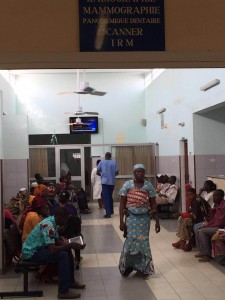 Gilbert, the acolyte Dimitri …), but each one pervaded by a spiritual universe with profoundly Camillian nuances…
Gilbert, the acolyte Dimitri …), but each one pervaded by a spiritual universe with profoundly Camillian nuances…
Naturally I could go on for a long time with my reportage …
With a long beard, sandals on their feet and the scent of the forest in their hair. For that is how we have always imagined our missionaries, at least we in the West, above all in the preaching that is offered to us during missionary October: poor amongst the poor, with a nostalgia for distant lands in which to open up passages and a candle of faith to be lit in unbelieving lands. October is their month and to such an extent that by now it is the custom – above all where the air of the Church is breathed in – to call that month ‘missionary October’. To make the feast day of Guardian Angels its ‘incipit’, a feast day which is almost a hope and a wish: becoming angels for those who in their lives have the wounded wings of misery or desperation; the ambitious secret of Christianity: to scrutinise one’s brother with the look of Christ. To make the feast day of All Saints its worthy closure: in a addition to being a hope this feast day is also a challenge, that is to say to become saints ourselves through humble and silent everyday work. In the middle a whole month which the Church dedicates to celebrating her missionary dimension: born to enter the streets of the word; a Church always called to be the image of God whose Word is a message of hope for all men who rack their brains under the sky.
Prudence and common sense make me say, in conclusion, that – probably – ‘everything that glitters is not gold’: but we know that a simple and light golden straw amongst very much straw – whose colour it shares but not its consistency and value – is able to reflect so much light!
During the days that I spent in Burkina Faso amongst our religious brothers I saw so much light…I hope that I will be able to keep one warm and luminous ray of that light!
Fr. Gianfranco
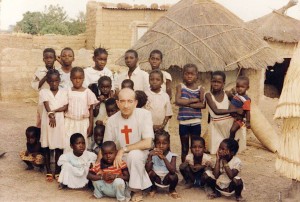 P.S.: Just when I was challenging a white page to set down these feelings of mine in ‘ink’, there arrived the news of the death of Fr. Giovanni Grigoletto, a Camillian religious who had spent long years of his life in the land of Burkina Faso. Grateful to the Lord for the gift of his life and his Camillian vocation, we invoke for him the reward promised to ‘good and faithful’ servants!
P.S.: Just when I was challenging a white page to set down these feelings of mine in ‘ink’, there arrived the news of the death of Fr. Giovanni Grigoletto, a Camillian religious who had spent long years of his life in the land of Burkina Faso. Grateful to the Lord for the gift of his life and his Camillian vocation, we invoke for him the reward promised to ‘good and faithful’ servants!
R.I.P.



